
Background information
Silence at the touch of a button: how does ANC work?
by Dayan Pfammatter

The company Rocket Science takes on noise and acoustic challenges. The team tells me about their projects, how they came together and what is meant by Active Noise Control.
When I visit the Rocket Science office, I see a sight full of cables, boxes and computers. On the many shelves of the office in Zurich's Binz neighbourhood are blue, red and green boxes full to the brim with electronic parts waiting to be used. Two whiteboards are placed next to them. They are scribbled over with algebraic formulae. The floor is littered with strands of cable, which I recognise as potential tripping hazards. Hanging from the cables are various prototypes that the team is working on. This is the home of Rocket Science.
Manuel Isenegger, who specialises in psychoacoustics, tries to explain the company's latest project to me. However, he is repeatedly interrupted by the siren-like sounds of an old signal generator. Philippe Niquille, CEO of Rocket Science, is demonstrating the sound spectrum of the generator to Tom, our photographer, at too high a volume in the middle of the office.
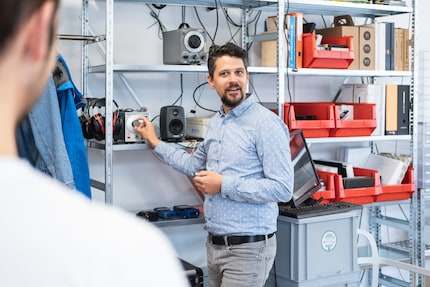
At last, the loudspeaker to which the generator is attached quietens down. Philippe joins us and begins to talk. Rocket Science has been around for almost ten years. He and Manuel have been there for three years. The company operates as a boutique for acoustics and active noise and vibration control. This means that Philippe and Manuel and their team offer various solutions for a wide range of noise and vibration problems. The most important thing for them is to take a pragmatic approach and think along with the customer. This is necessary for almost every project in this area, Manuel explains to me.
In February, Philippe tells me, he and his team completed a major project. Rocket Science had to take care of the chimney of a thermal power plant. The problem was as trivial as it was annoying: depending on the time of day and temperature, the plant's chimney turned into a ship's horn: various air currents were responsible for the chimney sounding like an oversized clarinet, explains Philippe.
The situation is very unpleasant for local residents and the power plant had to restrict operations. The entire plant could no longer be operated at the same capacity. This meant a significant loss of income for the operators. They therefore commissioned the experts from Rocket Science. They took on the highly complex plant, in which steam is generated from the heat. The vapour is converted into energy and then filtered dozens of times so that the exhaust air can be released into the environment - which happens through the chimney. The fact that the chimney could sound like a giant clarinet was difficult to foresee when planning the system due to its high level of complexity.
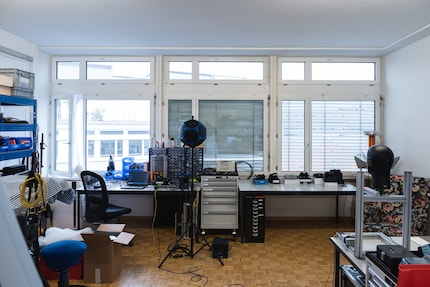
Rocket Science was able to achieve the noise reduction in several episodes, Philippe Niquille explains to me. First, Philippe and his team lowered a microphone into the chimney to measure the noise. That didn't work. Because of the high heat, the microphone melted away. The team of experts had to think of something else. In the next episode of the project, they shot into the tower with a blank pistol to see which of the noise frequencies reverberated for a long time - a test procedure that has also been carried out in other projects under police supervision, Philippe says with a grin. During the last test, the most reserved member of the team hit the walls of the chimney with a sledgehammer to get acoustic feedback.
The next episode was the replica of the fireplace. The team recreated the chimney in a 1:12 model to better understand the conditions. Philippe explains that the mini chimney was whistling in the office for two months. Because the replica chimney is smaller than in reality, they had to work with a higher sound frequency.
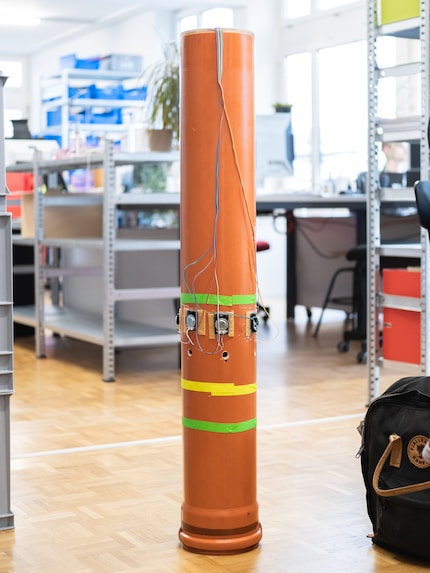
In the end, it took eight months for the team to manage to sound the chimney using cleverly arranged loudspeakers with complex counter waves in such a way that the sounds cancel each other out in the sound field and the honking is reduced. The process is called Active Noise Control and is also used in noise-cancelling headphones. To install the loudspeakers, the team had large holes drilled in the chimney. Since then, the residents have had peace and quiet and the power plant can run at full capacity again.
Unfortunately, Philippe is not allowed to tell me anything about many of Rocket Science's projects. This is because the customers do not want to be named. "Especially when it comes to industrial projects, not everyone wants to be seen in the cards," he explains to me. Another project Philippe can tell me about is the Riders Hotel in Laax.
The hotel is a dual-use case: it is a hotel and club in one building. In contrast to the chimney, however, the operators came to Rocket Science with this problem even before it was built. It is clear that the club, which plays music at a sound pressure level of around 100 dB(A), should not be heard by guests who want to sleep on the upper floor. This is why the acoustic separation of the club was already planned during the construction work.
This was achieved with a special concrete floor that separates the upper floor from the basement. The floor primarily reduces the low frequencies - i.e. the bass - that otherwise reverberate in many buildings.
Later, the Rocket Science team installed a virtual curtain: the entrance to the club was a weak point where the low-frequency noise always penetrated. The passive building acoustics measures could not cope with this noise. An active solution was therefore needed. Using active noise protection technology and DSP (digital signal processing), the team was able to achieve a further 20 decibel reduction with a customised device.
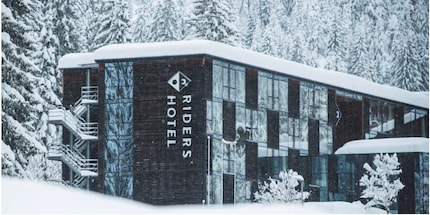
The projects that Philippe and Manuel talk about are all completely different. The team members who work at Rocket Science are also different. They include an electrical engineer, a programmer, two doctors of physics, a biologist and a financial economist. With this knowledge, they can tackle projects particularly efficiently, Philippe explains to me. The scientific background helps them to understand the problems and break them down so that they can push the boundaries of what is physically possible.
I want to know how Philippe and Manuel found Rocket Science. The two of them think for a moment and tell me about a joint project that brought them together. It was about how helicopter noise can be reduced for the occupants. Philippe originally comes from the aviation industry, where he worked on large helicopters. Rocket Science had already been around for about seven years. The company was founded by Christian Frick. Philippe describes him as a very curious person. Christian is a scientist and used to work a lot as a sound engineer. He realised that the sound at many concerts didn't sound good, or sounded where it wasn't supposed to. That's why he started experimenting and founded the company on the side.
You can find more Rocket Science projects at this link. These include the collaboration with the band Rammstein, the simulation of Zurich's too-loud Langstrasse and the festival that no longer blasts the whole neighbourhood with sound.
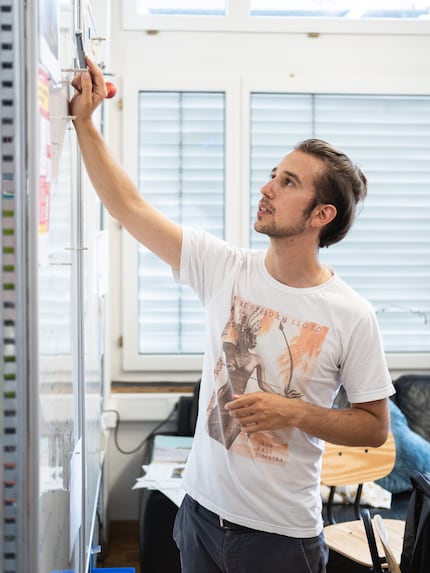
It wasn't my first visit to Rocket Science. The first time I met Philippe and his team was for the story of the AirPods Pro. Even then, it was clear that we wanted to continue working together. But then comes corona and everything is delayed.
An ANC headset also works with complex counter waves. That's why the Rocket Science team of experts is testing and measuring headphones for digitec. Seven noise-cancelling headphones are currently on the table at Rocket Science. Manuel, Philippe and the team have been testing and measuring the headphones for almost two months so far. I will be publishing their results in two days' time. The audio nerds also want to find out how active noise cancellation affects the sound of the music and whether the noise cancelling of headphones is affected when people wear glasses.
If you don't want to miss any of the upcoming articles, follow me as author.
Testing devices and gadgets is my thing. Some experiments lead to interesting insights, others to demolished phones. I’m hooked on series and can’t imagine life without Netflix. In summer, you’ll find me soaking up the sun by the lake or at a music festival.
Interesting facts about products, behind-the-scenes looks at manufacturers and deep-dives on interesting people.
Show all